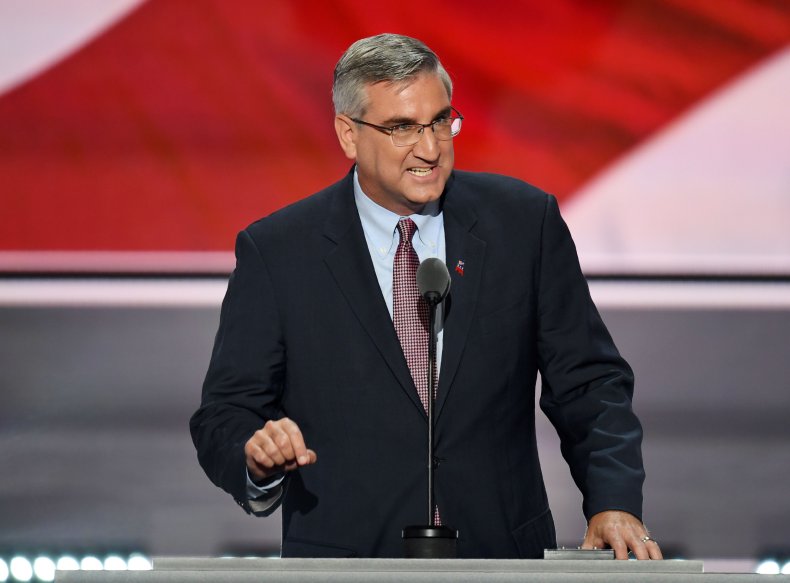[ad_1]
Indiana’s Republican Governor Eric Holcomb is suing his state’s legislature for “usurping a power given exclusively to the governor” as stated in a lawsuit filed in Marion County court Tuesday by his lawyers, which challenges a new law passed by legislation.
Holcomb’s veto of House Bill 1123 on April 9, which allows for legislative leaders to call the General Assembly into an “emergency session” if the governor declares a state of emergency, was overridden by Indiana’s majority Republican Legislature on April 15 when it became law, according to the Associated Press.
“This controversy must be resolved as soon as possible or the consequences could be severe, including disruption to Indiana and the proper functioning of state government—something that concerns every Hoosier,” the lawsuit stated.
In a letter to Todd Huston on April 9, the speaker of the Indiana House of Representatives, who is named as a defendant in the lawsuit, Holcomb detailed his reasons behind his vetoing of the bill and said it goes against Indiana’s Constitution.
“It constitutes a legislative encroachment on the governor’s power as head of the executive branch,” Holcomb wrote about the bill that is now a law. “In addition, well-established Indiana case law zealously protects each branch of state government from intrusion by another.”
The lawsuit mentioned past Indiana constitutional provisions and said that “what never changed in these constitutional provisions over the years is the sole and exclusive right and authority of the governor to call special sessions. Nowhere in these changes, or in the actual text of the Indiana Constitution itself, was the General Assembly ever given that same right, power, or ability.”
Republican legislative leaders said that it had been expected that the new law would be legally challenged and said that it was not “anti-governor,” according to the Associated Press.
For more reporting from the Associated Press, see below:

Jim Watson/AFP via Getty Images
Republican legislators pushed the bill after criticism from many conservatives over the mask mandate and other COVID-19 restrictions that Holcomb imposed by executive order with the General Assembly not meeting for about nine months after its 2020 session ended. Similar debates are occurring in states across the country.
They have praised Holcomb’s handling of the coronavirus pandemic, which health officials say has killed more than 13,000 people in the state.
Senate President Pro Tem Rodric Bray, who is another defendant named in the lawsuit, and Huston said in statements that Holcomb has been clear on his intent to challenge the new law.
“We are in consultation with the Indiana Attorney General’s Office on what the next steps will be in this matter,” Huston said.
Holcomb’s lawsuit argues that any use of the law would be disruptive and that the measure causes “uncertainty and confusion over the constitutional powers of the Executive and Legislative Branches.”
“I took an oath to uphold the Constitution of the State of Indiana and I have an obligation do so,” Holcomb said in a statement announcing the lawsuit. “This filing is about the future of the executive branch and all the governors who will serve long after I’m gone.”
Former state Supreme Court Justice Frank Sullivan, who spent 19 years on the court after being a top staffer for Democratic Gov. Evan Bayh, is among the legal experts who have questioned the Legislature’s action. Sullivan said he believed the state’s high court would likely find that the Legislature’s procedure is unconstitutional.
The Legislature’s powers include authority to terminate emergency orders issued by the governor. Numerous Republican lawmakers sponsored such resolutions during this year’s session, but legislative leaders didn’t advance any of them for votes before the regular legislative session ended last week.
Republican Sen. Sue Glick of LaGrange, who sponsored the new law, said Holcomb acted without legislative input in imposing restrictions on the state’s 6.7 million residents. Glick argued during the legislative session that shouldn’t happen during such long-lasting emergencies.
“We’re not attempting to hold government hostage,” Glick said. “What we’re trying to do is get our seat at the table to be involved in the decision-making process, not be precluded from participation.”
[ad_2]
Source link